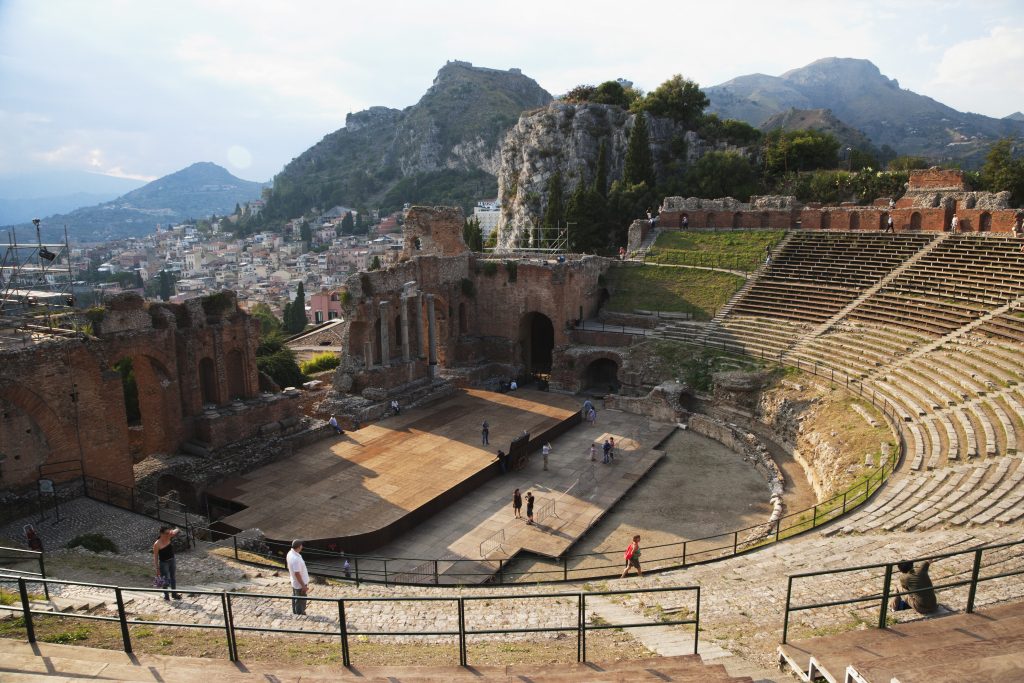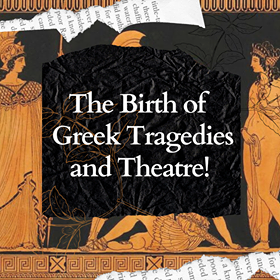
STORYTIME
May 27, 2020
SHAKESPEARE’S SECRETS
May 29, 2020The Birth of Greek Tragedy and Theatre #1
In this blog, we will be discussing Greek history concerning the theatre. Today we will be starting with the worship of Dionysus.
Greek tragic drama began its origins in Dionysian worship to the plays of Sophocles and Euripides through rituals, festivals, and impulsive emotion. This occurred because of how Greek tragedy itself evolved. We have to put ourselves in their situation to understand why the writers wrote about the themes they did. We have to go the base roots of Greek tragedy and their dionysian origins. Many of the symbols from the rituals are connected to how the playwrights evolved from the worship. And that was their only primary source of the material. Greek tragedy evolved from Dionysian worship, which took dramatic forms itself. The writers took advantage of the Dionysian culture’s nature of impulse, violence, and ritual, to make their plays more dramatic. This was done by taking some of the ritualistic qualities and expanding on them, such as the use of the chorus and the use of the god himself.
The connection to Dionysus is from the ritualistic worship of the progression festivals surrounding honouring the god. This can be seen in how the god was initially worshiped, the evolution of ceremonies, and how playwrights of the time took the base of the culture to amplify the dramatic experience. You can see it in the main themes of what the god represented; connection to the irrationality of emotions, violence, and impulse. Over the years, these rituals gradually shifted from purely worshiping acts to dramatic festivals.

When we look at the evolution of the rituals, you see it start in the ceremonies which celebrated through the use of masks. The mask was seen as a cult image due to its association with their statue of Dionysus, which they used during the god’s worship. The statue was always found in the sanctuary, were over a column a mask was hung and below the mask, a long garment-sometimes two, an over garment and undergarment-which also embraced the column. The symbol of the mask was very expressive when used in cult ceremonies. It’s seen as an image which was a perplexing riddle of his twofold nature stares-and with its madness. This mask made it, so Dionysus was present in person, in the form of a mask at the various ceremonies. Even in the earliest stages of worship, you can make a clear link to dramatic practices. As the rituals became more dramatic, they were also appealing to more than just the religious cult group.
Bothe major dramatic festivals at which tragedies performed the Lenaia and the Great Dionysia held in his honour; the succession of local festivals was known as the rural Dionysia. The Great Dionysia began during the lent season, and the celebration lasted for five or six days. The first days of the festival included several ceremonies and a torch-lit procession to escort Dionysus’s statue from Eleutheria (his legendary home) to the theatre and back. The god remained at the theatre until the conclusion of the drama program. This festival was held in the spring when the vine first put forth its branches, and all business ceased for several days. People gathered to watch great plays, and writers such as Euripides were considered to be in the services of the god himself. There was a sense that Dionysus himself was present, and it was believed that performing and watching the plays was tantamount to reverent worship. Yes, there were still religious elements involved, but It was there where the events became more civic and less worshiping to the god.
Next time we will move onto the tragedies of Aeschylus, Sophocles, and Euripides are considered the cornerstones of the western literary canon. Plays initially performed in the competition during either Lenaia or the Great Dionysia annual celebrations of the cult Dionysus held in Athens. They were subsequently re-performed in the Greek cities around the Mediterranean, allowing the theatre to spread to a larger area.
There was a sense that Dionysus himself was present, and it was believed that performing and watching the plays was tantamount to reverent worship.
let us know what you thought,




